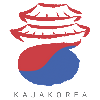Korean Lessons ᚛ Level 3 - Korean for Beginners #2 (Lessons 61 to 90) ᚛ Lesson 79 - To be able in Korean, to have the right, permission [-아/어도 되다] [-(으)면 안 되다]
To be able in Korean, to have the right, permission [-아/어도 되다] [-(으)면 안 되다]
"To have the right to do" with -아/어도 되다
In Korean, one expresses having permission to perform an action using the following form:
[Verb conjugated in the present tense casual style]도 되다
In this expression, we find two elements:
- The termination with -아/어도 that we saw in the previous chapter, which can be translated as "even if"
- The verb 되다, a verb with multiple meanings that is very commonly used in Korean, which in its primary meaning can be translated "to be ok", "to be possible"
Literally, the -아/어도 되다 form signifies "even if (you do that), it's ok". In English, this expression would be translated as "to be able", "to have authorisation to", or "to have the right to".
Note that -아/어도 되다 does not allow one to express "to be able" in the sense of capability to perform an action (in which case one must use the form with -(으)ㄹ 수 있다) but actually having permission to do something.
가도 돼요.
→ You can go there. / You are authorized to go there.
여기 앉아도 돼요?
→ Can I sit here?
사진을 찍어도 돼요?
→ Can I take a photo?
여기에서 담배를 피워도 돼요?
→ Can I smoke a cigarette here?
들어가도 돼요?
→ Can I come in?
더우면 창문 열어도 돼요.
→ If you are hot, you can open the window.
Forms other than 되다
Learn more
Uses of -(으)면 되다
Learn more
To have the right not to do
Learn more
To not be able to do (no permission) -(으)면 안 되다
In order to express the absence of permission to do something, really being forbidden, Koreans generally use the following structure:
[Stem](으)면 안 되다
In this expression, we find two elements
- The conditional form -(으)면, which can be translated by "if"
- The verb 되다 in negative form, indicating that an action "is not ok"
Literally, the -(으)면 안 되다 form means "if (you do that), that's not ok", in other words, “you can’t do that”.
In English, we would translate this with expressions like "to not have the right" or "to not be able", "to not be authorized to", “to not be allowed to”...
여기에서 담배를 피우면 안 됩니다.
→ You can't smoke here. (Lit: If you smoke cigarettes here, it’s not ok.)
너무 어리니까 가면 안 돼.
→ Since you are too young, you can't go there.
개는 가게 안에 들어오면 안 돼요.
→ Dogs are not authorized to enter the store.
너는 술을 마시면 안 돼.
→ You are not authorized to drink alcohol.
Summary table of structure
Learn more
Exercises
Learn more
Traveling to South Korea can be an unforgettable experience. But when you don’t speak Korean, everything gets more complicated: ordering in a restaurant or café becomes stressful, you can’t understand signs or directions, asking for help in case of trouble is nearly impossible, and most importantly, you miss out on the very essence of a successful trip to Korea: connecting with the locals.
Since English - Korean machine translators can’t always be trusted (the two languages work in completely different ways), it’s essential to prepare yourself in advance to fully enjoy your trip to South Korea!
Learn more

